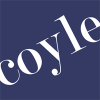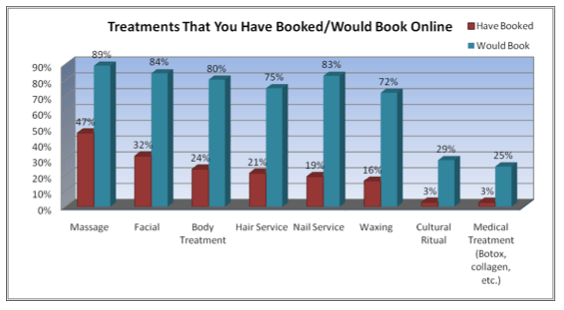There was a time when many spa professionals would not have considered online booking for their spa. Scheduling supply/demand remains a challenge for even the busiest spa, and a simple request to extend a treatment or a request for a male therapist could turn order-taking into an ordeal. Also, there is the concern that the consumer will not schedule the appropriate treatment, setting everyone up for disappointment. We all know of these and other reasons why spa operators might be hesitant to take reservations online. Are there reasons that the consumer doesn’t want to book online?
In the Global Spa Survey, Coyle asked consumers what treatments they have booked and would be willing to book online. The findings are as follows:
Interestingly, nearly half of the respondents confirmed that they have booked a massage online. The percentages decline for the other services, but the decrease in frequency seems to mirror demand and sales mix for these modalities as well.
For those who would not be willing to book a treatment online, we asked ‘Why?’ The most prevalent responses from those surveyed were that they would prefer to be able to ask specific questions about the service or treatment or they would just prefer to speak with a ‘live’ person (11% for each).
Specific questions about the provider were also cited (5%). Interestingly, 4% said that they would need to visit the location before booking a treatment online. This dovetailed with those who wanted to get a ‘feel for the spa’ through a phone call. Other respondents stated that they simply would never book online because they would never use anyone but the person they know. This is interesting, particularly since many online booking portals offer the ability to select the provider.
It seems likely that by providing additional information to the online shopper like staff bio/specialties, list of contraindications, description of benefits or other details relevant to the treatment they are selecting, could convert those ‘on the edge’ to being online bookers. Also, a bit of education for repeat guests, advising them of online booking capabilities, could save phone time for both the spa and consumer.
Either way, it is clear that the stated resistance to book online was fairly low, and again we see an opportunity for the resourceful spa operator given that only 30% of the spas evaluators researched offered online booking.














